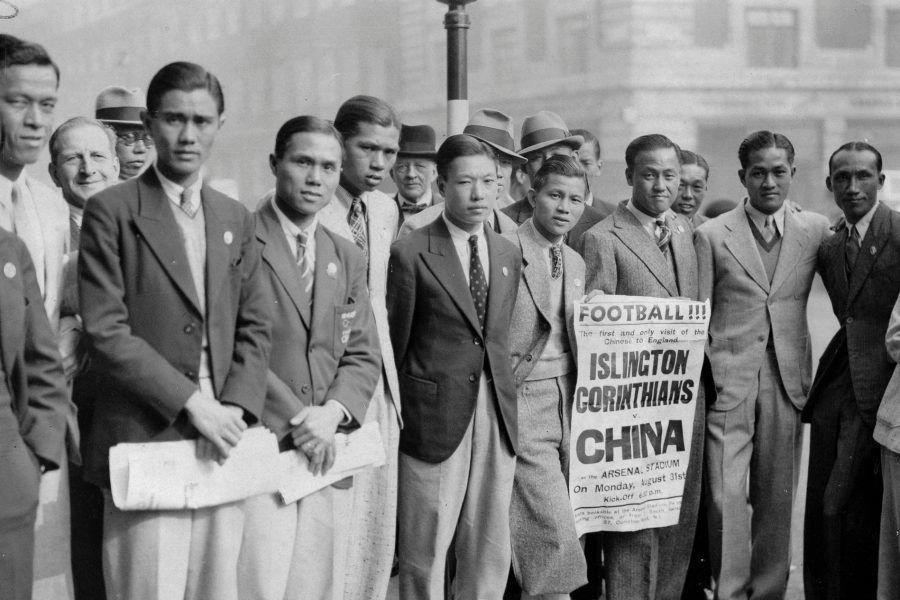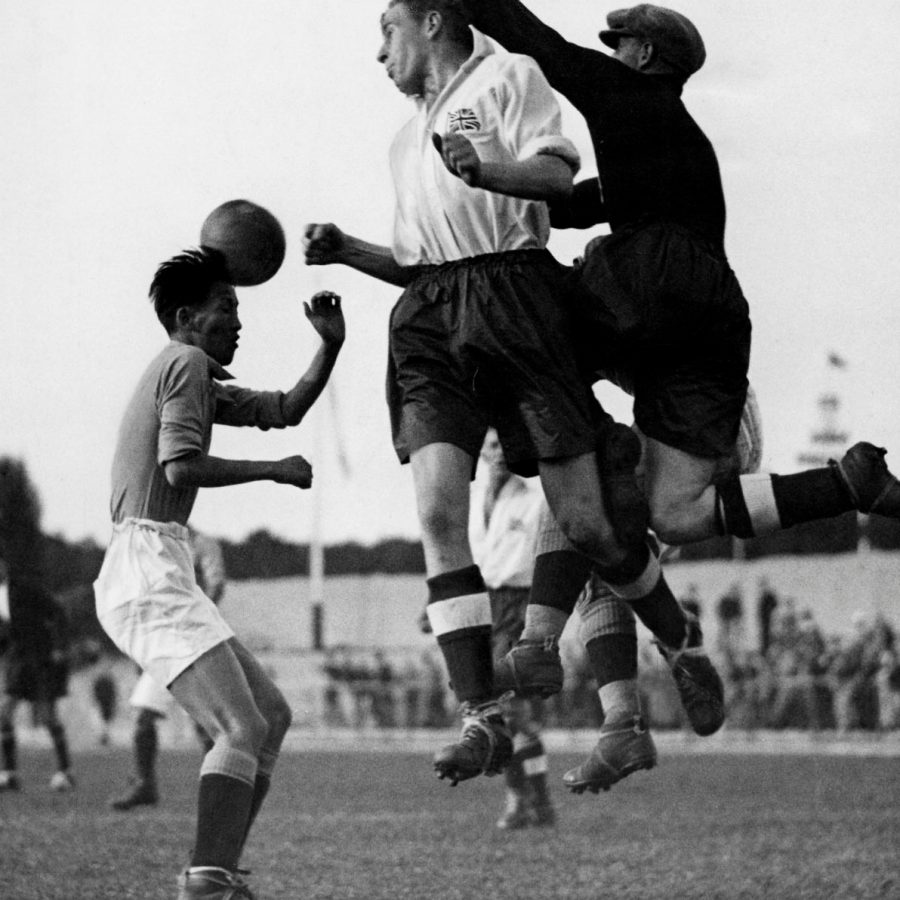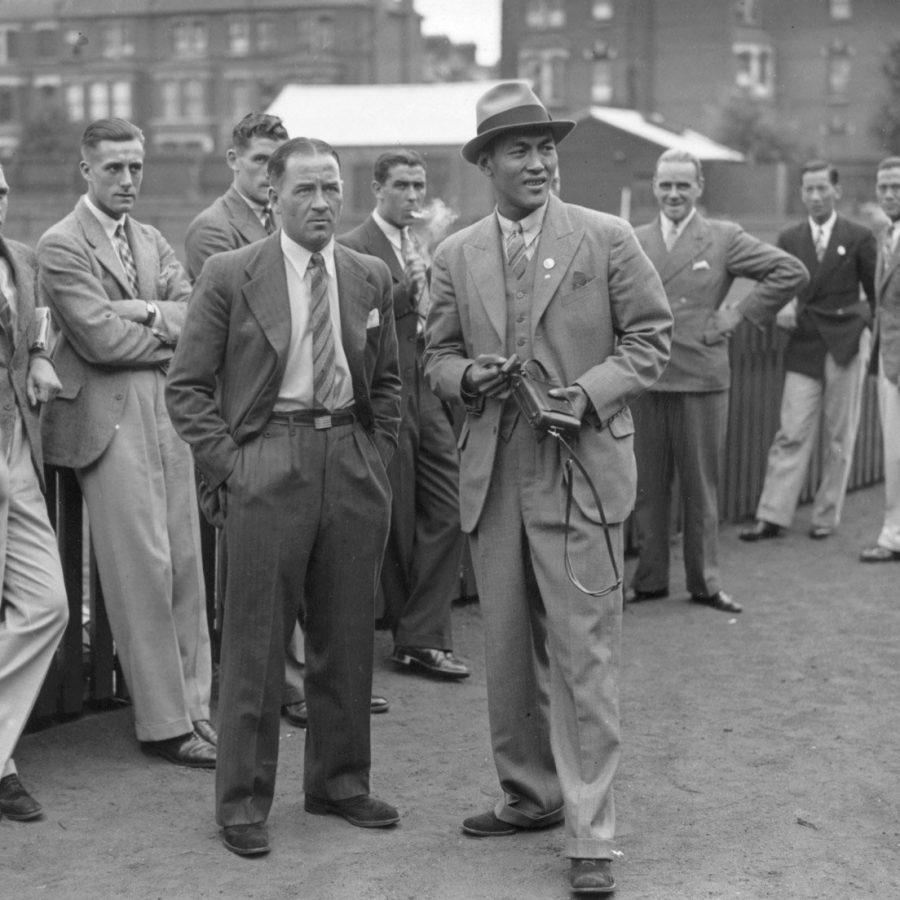Paying tribute to Hong Kong's finest footballer

There is little surviving footage of Lee Wai-tong. He began playing in 1922, and so stories of his prowess are prone to exaggeration. But one thing has always been acknowledged: for a period, Lee was one of the world’s finest footballers.

Credit: Sportbild Schirner / ullstein bild via Getty Images
A whippet-fast striker, Lee had an unerring eye for goal and a left foot like a bazooka, which earned him the nickname ‘Iron Foot.’
It’s said that he developed his accuracy through the necessity of having to practise shooting using oranges, with real leather footballs being hard to come by. And his net-busting power? A side-effect of being forced to resort to partially filled sandbags once the oranges were gone.
There’s more than a hint of the apocryphal to those reports, but they could go some way to explaining his extraordinary abilities and achievements.
Lee’s record is incredible. He notched more than 1,000 goals during a 25-year career, which was spent entirely in Hong Kong and on the Chinese mainland. After making his debut at 17, he led Hong Kong club side South China to its first league title in 1924. He would go on to drive the team to a further seven championships. He also represented the China national team from the age of just 18, and rose to national fame after scoring a five-minute hat-trick against Japan at the 1923 Far Eastern Games.
But his footballing achievements only account for part of his incredible story: Lee was just as revered for his deeds off the pitch.
There are many tales, but Lee’s efforts to ensure China was able to compete at its first-ever Olympic Games in 1936 have gone down in Chinese lore. With the country riven by political turmoil, the Chinese government was only able to provide a fraction of the funding needed to cover the cost of sending a team to compete in Berlin.
So captain Lee organised an exhibition tour in order to raise the cash. Over 60 days leading up to the Olympics, Lee and his teammates played some 27 matches across Asia as fans flocked to see the striker in action. China didn’t lose a single match during the arduous tour, winning 23 games and drawing four – raising enough money for the squad to travel to Germany.

Credit: J. A. Hampton / Topical Press Agency / Getty Images
At the Olympics, China were narrowly beaten 2-0 in their opening game against Great Britain. It was widely suggested that the China side was suffering from extreme fatigue after their exhausting build-up. That story has since been immortalised in Field of Dreams, an award-winning play by Hong Kong playwright Anthony Chan.
Lee’s image as a national treasure was cemented during the Second World War. When Japanese forces invaded Hong Kong, Lee escaped to the Chinese mainland and joined the army. He spent the war arranging exhibition football matches to raise funds for the war effort and those affected by the fighting.
After the war, Lee returned to Hong Kong and resumed playing. And if his ability, determination and philanthropic spirit weren’t enough to endear him to football supporters in Hong Kong, he was also that rarest of things: a loyal footballer.
As word spread of Lee’s prowess, he was offered the chance to sign for a number of top European clubs, including Arsenal and Parisian side Red Star. But Lee refused to move, preferring instead to end his playing career in 1948 with his very first love – Hong Kong league side South China.
More inspiration
Hong Kong travel information
- China – the Chinese Mainland, Hong Kong SAR, Macao SAR and Taiwan Region
- Hong Kong SAR - English
- Chinese Mainland (China) - English
- Taiwan, China - English
- 香港特別行政區 - 繁體中文
- 中国內地 - 简体中文
- 中國台灣 - 繁體中文
- Africa
- South Africa - English
- Asia
- Bangladesh - English
- Korea - English
- Singapore - English
- Cambodia - English
- 한국 - 한국어
- Sri Lanka - English
- India - English
- Malaysia - English
- Thailand - English
- Indonesia - English
- Maldives - English
- ประเทศไทย - ภาษาไทย
- Indonesia - Bahasa Indonesia
- Myanmar - English
- Vietnam - English
- Japan - English
- Nepal - English
- Việt Nam - tiếng Việt
- 日本 - 日本語
- Philippines - English
- Australasia
- Australia - English
- New Zealand - English
- Europe
- Belgium - English
- France - Français
- Россия - Русский
- Denmark - English
- Ireland - English
- Schweiz - Deutsch
- Deutschland - Deutsch
- Italia - Italiano
- United Kingdom - English
- España - Español
- Nederland - Nederlands
- Middle East
- Bahrain - English
- Saudi Arabia - English
- United Arab Emirates and Qatar - English
- Israel - English






.renditionimage.450.450.jpg)

